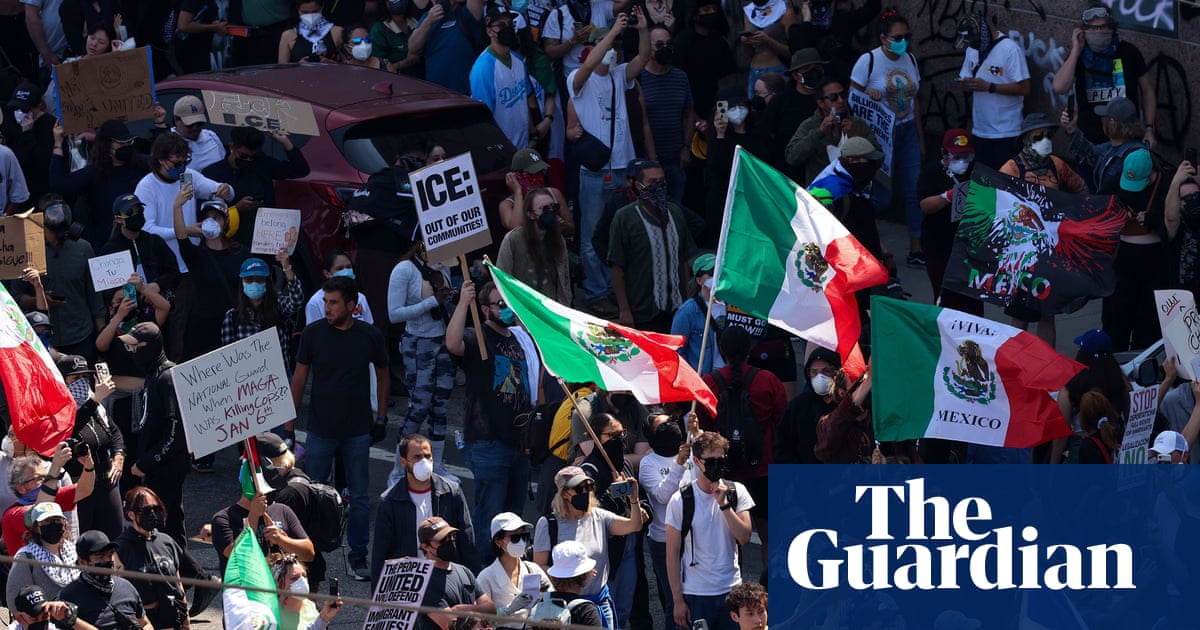TheCaliforniacity of Glendale has terminated a contract to house federalimmigrationdetainees, with local officials saying the arrangement had become increasingly “divisive” within the community.
The decision by the Los Angeles county municipality to sever ties with US immigration and customs enforcement (Ice) comes after three days ofprotestsin other parts of the LA area. That included Sunday near the Metropolitan Detention Center, about nine miles from Glendale, where cars were set alight as anti-Ice protesters clashed with law enforcement, including the National Guard.
Glendale city officials described the move to cancel the contract, which has been in place since 2007, as a local decision that “is not politically driven” but is “rooted in what this city stands for – public safety, local accountability, and trust”.
“The city recognizes that public perception of the Ice contract – no matter how limited or carefully managed, no matter the good – has become divisive,”it said.
But the decision also reflects political tension among city and state leadership as well as federal government actions to enforceUS immigrationlaws at the heart of the unrest.
Glendale’s city leadership said its police department does not and will not enforce federal immigration law, in accordance with aCaliforniastate statute which prohibits the use of local law enforcement resources for immigration enforcement.
“We remain in full compliance” with California state law, the city said in a statement. “The Glendale police department has not engaged in immigration enforcement nor will it do so moving forward.”
But they acknowledged that ending the agreement with Ice could make it more difficult for families to visit detained relatives and for people held under immigration laws to access legal counsel in other jurisdictions.
Glendale is the third largest city within LA county, with a population of about 210,000. Itregards itselfas “a progressive community that offers the best in urban-suburban living and is an optimal location for successful businesses large and small”. Glendale’s chamber of commerce calls it the “Jewel City”.
In Glendale’s statement on Sunday, it said it “is consistently ranked as one of the safest cities in the nation”.
“That is no accident,” the statement said. “We cannot allow that trust to be undermined.”
According to NBC, 82 people were detained by Ice and housed in the Glendale city jail since January. A city spokesperson told the outlet those detainees spent between six and 12 hours in the jail facility, but they were not fingerprinted or booked.
Glendale says the jail only provided a bed, food, water, and medical care to Ice detainees and did not house minors. But under California law, state and local law enforcement are prohibited from allowing federal immigration authorities to use space in their facility.
Civil liberties groups have opposed the arrangement. “Ultimately and effectively, this Glendale contract with Ice is helping theTrump administrationcarry out its mass deportation agenda that is racist and has abused countless people’s constitutional, civil and human rights,” said Andres Kwon, with the American Civil Liberties Union, to NBC.
The decision came as protests intensified after the Trump administration deployed national guard troops inLos Angeleson Sunday against the wishes of Gavin Newsom, who has requested that they be removed.
“We didn’t have a problem until Trump got involved,” the California governorsaidin a social media post. “This is a serious breach of state sovereignty – inflaming tensions while pulling resources from where they’re actually needed.”
Trump said he had directed his administration to “to take all such action necessary to liberate Los Angeles”.
LA police later declared an unlawful assembly, and police chief Jim McDonnell said officers were “overwhelmed” by the remaining protesters that included regular agitators who show up at demonstrations to cause trouble.
The anti-Ice protests also spread to northern California. In San Francisco, 60 people were arrested Sunday night as protesters shattered windows and vandalized buildings, according to the city’s mayor, Daniel Lurie, and police.
In astatementlate Sunday night, Lurie said local officials supported peaceful protest but would not tolerate “violent and destructive behavior”.
